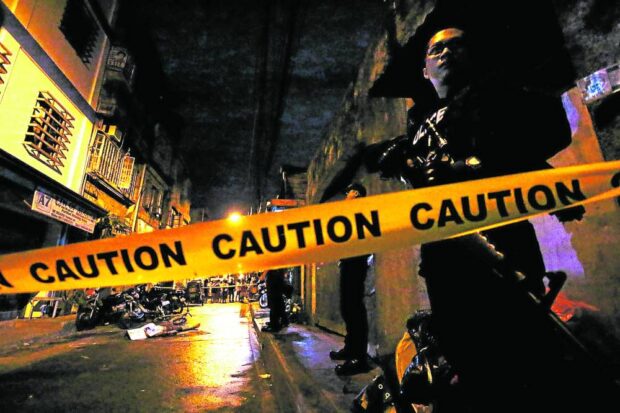EU rights rep: ‘So few’ prosecutions for EJKs ‘worrying’, victims deserve justice

INQUIRER FILES: “Drug war”
MANILA, Philippines — The European Union’s (EU) Special Representative for Human Rights said that it is “worrying” that “so few” have been indicted for alleged extrajudicial killings (EJKs) in the country.
In an interview with INQUIRER.net on Thursday, EU Special Representative for Human Rights Eamon Gilmore highlighted the need for the Philippine government to do more to bring people to justice as he also cited the only three convictions out of the at least 6,000 “acknowledged” EJKs.
“The numbers acknowledged by the state are, I understand, 6,500 The United Nations system puts it higher than that at 8,500. NGOs put it as high as 30,000. The really worrying aspect is that so few have been prosecuted for these illegal killings. There have only been three convictions out of 6,600 acknowledged extrajudicial killings. I think those figures speak for themselves. There is clearly a need to do more in the area,” said Gilmore.
READ: Only 3 prosecutions, convictions for drug war-related EJK since 2016 — US report
Article continues after this advertisementWhen asked about the International Criminal Court’s (ICC) probe into the “drug war” initiated by the previous Duterte administration, the rights envoy reiterated that the EU supports the tribunal, which also enjoys the backing of the United Nations.
Article continues after this advertisement“We respect its independence and the independence of its judgments. I think we need to also remember that the International Criminal Court is the court of last resort. It’s a complementary court and it only comes into play where a country is either unwilling or unable to deal with issues itself, issues of accountability and to bring people to justice,” Gilmore said.
He added, however, that it is ideal that the Philippines should be handling the drug war cases, stressing that: “The responsibility for protecting human rights rests in the first instance, with the government, with the state, with the individual country. The rights of people in the Philippines are no different to the rights of people anywhere else in the world.”
READ: ICC resumes probe on PH’s drug war
Gilmore then cautioned that if the Philippines fail to comply with international human rights standards, it risks economic trade benefits.
“The system of trade benefits that the Philippines benefits from is on condition that it complies with certain human right conventions and standards of the International Labor Organization,” he explained, noting that the renewal of the trade benefits known as the “Generalized Scheme of Preferences” will be reviewed by the EU’s 27 member states and parliamentary members.
READ: EU ‘very relieved’ to hear PH now working to address EJKs issue
Still, Gilmore expressed hope that the Philippines will make sure to hold people involved in the EJKs responsible so that justice will be served. He said the Philippines has shown more willingness to cooperate with the international community when it comes to human rights.
“Human rights belong to people everywhere and the people who have been killed in the Philippines in these illegal extrajudicial killings, they have the right, and their families and their loved ones, have a right to justice, and nobody should take that away from them, and in an ideal world, no one should be dependent on international bodies to assert those rights,” Gilmore stressed.
RELATED STORIES
Justice delayed: What the ICC probe means to drug war victims’ families (Part 1)
Palace slams EU criticism of drug war
Bato scores European lawmaker for questioning his deadly drug war